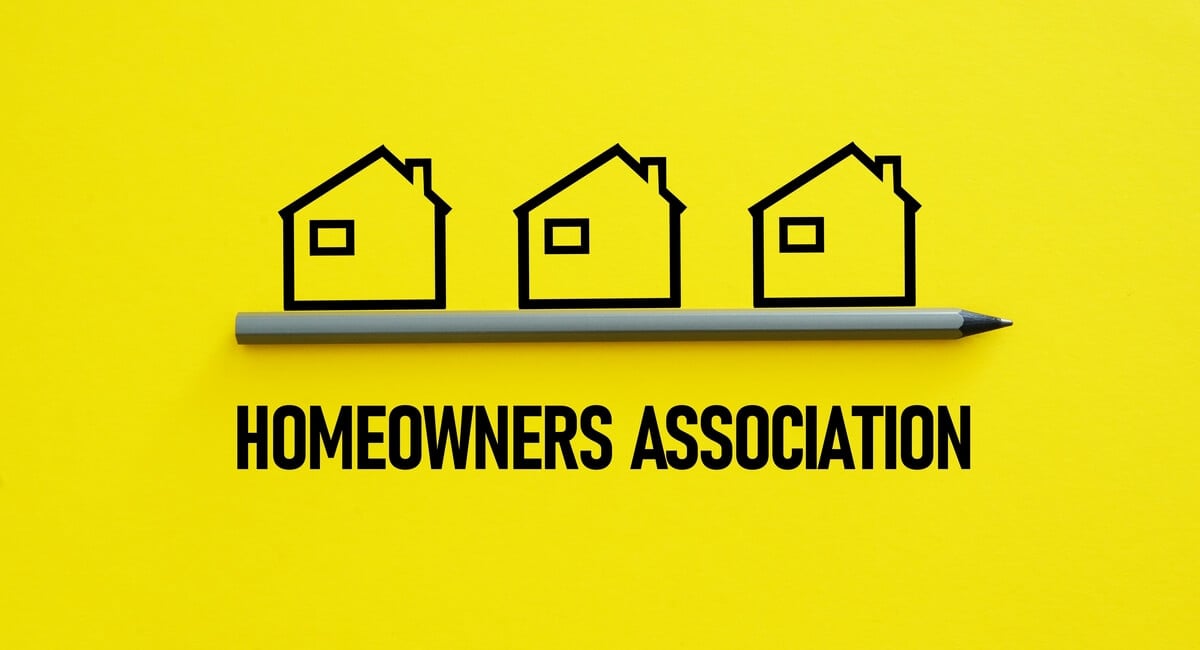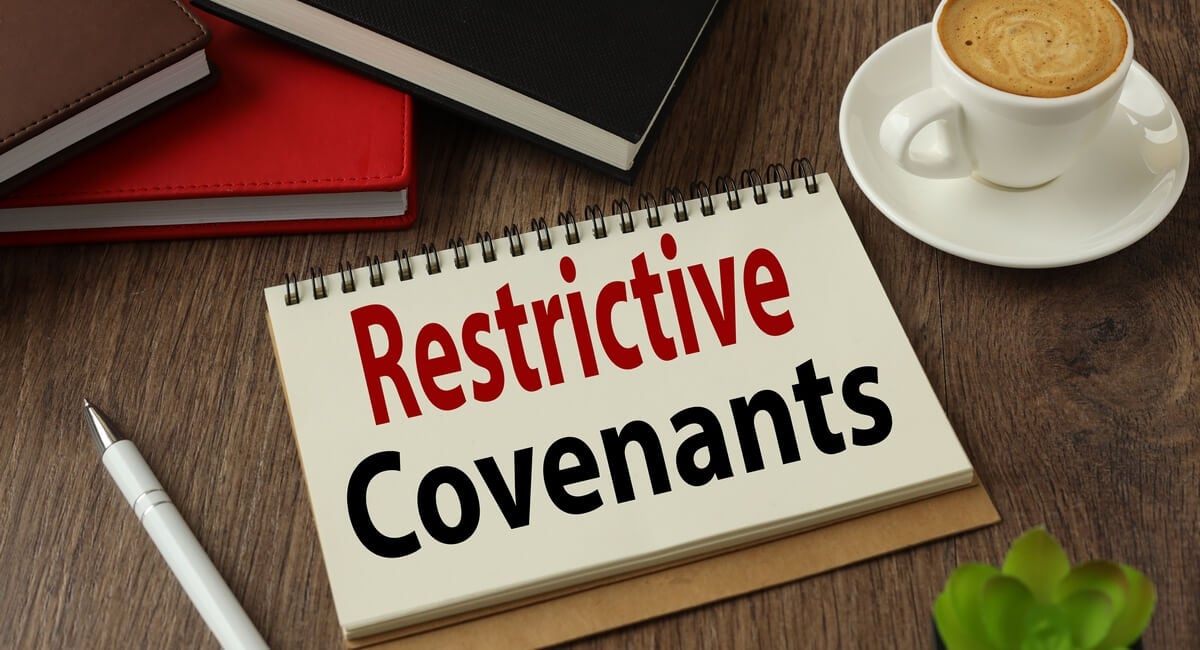When buying property in some communities, you may be required to follow certain rules and regulations. These rules are known as covenants, conditions, and restrictions (CC&Rs) and can have a significant impact on your experience as a homeowner. If you’re looking into buying residential or commercial property in a neighborhood with CC&Rs, you should understand what they are, how they work, and how they can impact your life.
What Are CC&Rs?
CC&Rs are a set of rules that dictate how a property can be used. Typically created and enforced by HOAs, CC&Rs are often found in planned neighborhoods, condo complexes, and industrial parks.
In most areas, CC&Rs are filed with the county clerk or recorder. When you purchase a property in a community with CC&Rs, you agree to follow the regulations. Failure to comply with the CC&Rs can lead to penalties.
Examples of CC&Rs
CC&Rs can vary widely across different communities. Some have a lengthy list of highly specific rules and restrictions. Others have just a few general regulations for community members to follow.
The following are some of the most common covenants and restrictions you’ll find in HOA communities or condo complexes:

Pet Restrictions
Some communities set restrictions on the quantity, size, or breeds of pets residents can own. For example, your community may ban dog breeds that are considered aggressive or dogs that are larger than 30 pounds. A two-pet limit is another common restriction. Additionally, many HOA communities ban residents from keeping animals such as chickens or goats outside.
Landscaping Requirements
In an effort to maintain appearances and preserve property values, your community might have covenants and restrictions on landscaping. You might be required to trim the grass regularly or get approval from your HOA before planting or removing trees. The CC&Rs may require you to remove holiday decorations by a certain date or prevent you from putting political signs or flags in your yard.

Home Exterior
Your community’s CC&Rs might dictate what colors you can or can’t paint your home. The HOA could request neutral colors only or require that the siding, gutters, and trim all match. Some communities even create a list of acceptable paint colors that homeowners must choose from.
Additional Structures
If you want to put a shed or fence on your property, you may need to get approval from your HOA. The CC&Rs could have a size limit or ban you from building certain structures altogether.
Renting Out Home
Many HOA and condo communities prohibit homeowners from renting out their properties. Some specifically ban short-term or vacation rentals, and some ban both short-term and long-term rentals.

Business Use of Home
While it’s highly unlikely that your HOA would stop you from having a home office, the CC&Rs may prevent you from running certain types of businesses from your home. Some communities ban home businesses that would bring extra traffic into the community. For example, you may not be allowed to operate a hair salon from your house.
Under the Fair Housing Act, CC&Rs cannot discriminate against you on the basis of race, gender, religion, disability, or other protected statuses. If you believe a community’s CC&Rs were written to prevent protected classes of people from moving in, legal action may be warranted.
Penalties for Not Abiding By CC&Rs
The penalties for not following your community’s regulations should be outlined in the CC&Rs. In most cases, the HOA will simply ask the homeowner to correct the issue before imposing any fines or penalties.
If the homeowner doesn’t comply with the HOA’s request, the HOA may give them a fine. If the homeowner doesn’t pay the fine, the HOA could take legal action against them. In extreme cases, the HOA could force the homeowner to sell the house for failure to comply with the CC&Rs. However, if the CC&Rs violate state laws or the Fair Housing Act, the court will not enforce them.
You may be able to ask for an exception if unique circumstances are preventing you from abiding by the CC&Rs. For example, if you have to move suddenly due to a family emergency and are unable to sell your home, your HOA may allow you to rent it out temporarily when rentals are otherwise banned.
Benefits of Living in a Community With CC&Rs
Living in a neighborhood with CC&Rs offers some valuable benefits. Here are a few of the upsides to CC&Rs:

Preserves the Value of Your Home
Many covenants and restrictions are put in place to maintain property values, which is one of the biggest advantages to living in an HOA community. The condition of the neighboring properties and the overall appearance of the community can have a major impact on your home’s value.
Keeps the Peace in the Neighborhood
CC&Rs often include rules on noise and behavior. For example, your community may have quiet hours from 10 p.m. to 6 a.m., or they might enforce rules about street parking. These regulations can help to create a peaceful, orderly neighborhood and prevent disputes between community members.

Maintains Appearances
For some homeowners, living in an aesthetically pleasing neighborhood is a priority. CC&Rs can ensure that the properties all look uniform, the lawns are free of trash and clutter, and no one paints their house a loud color or puts up controversial political signs.
Drawbacks of Living in a Community With CC&Rs
While there are benefits to living in a community with CC&Rs, there are also several drawbacks. Before buying property in a neighborhood with CC&Rs, you should review the regulations carefully to weigh the pros and cons.
Limits Your Freedoms as a Homeowner
Some CC&Rs are stricter than others, but all of them set restrictions on what you can and can’t do. Many people feel that they should be able to do whatever they want with their property and that CC&Rs are a violation of their rights as a homeowner. If you want complete freedom over your property, an HOA community may not be the right place for you.

Limits Opportunities as an Investor
Similarly, CC&Rs can limit your opportunities as a real estate investor. For instance, you may not be able to rent out a home in an HOA community. When purchasing commercial property in an industrial park, the CC&Rs may dictate what types of businesses you can rent to or how long the leases must be.
Fees and Dues
CC&Rs are almost always accompanied by fees and dues. In addition to enforcing the CC&Rs, HOAs also offer services like plowing or garbage collection and maintain common areas such as a pool or playground. Some homeowners feel that these amenities are worth paying monthly or annual fees, but others find the dues to be a waste of money.
Before purchasing property in a neighborhood with CC&Rs, you must read the rules carefully and assess whether they’re in line with your goals, needs, and preferences. CC&Rs can offer benefits to both residential and commercial property owners, but they can also limit your options and opportunities.




